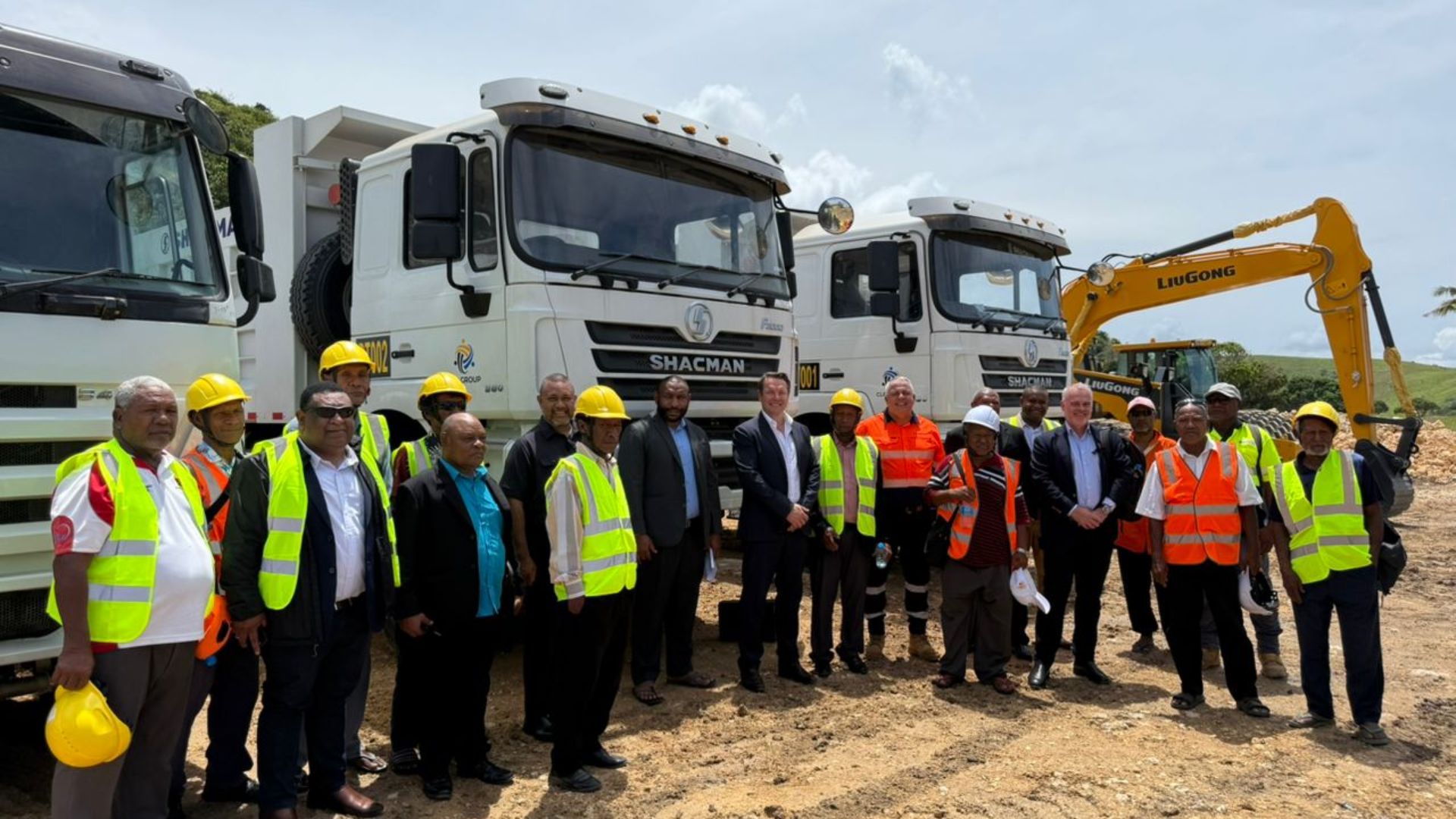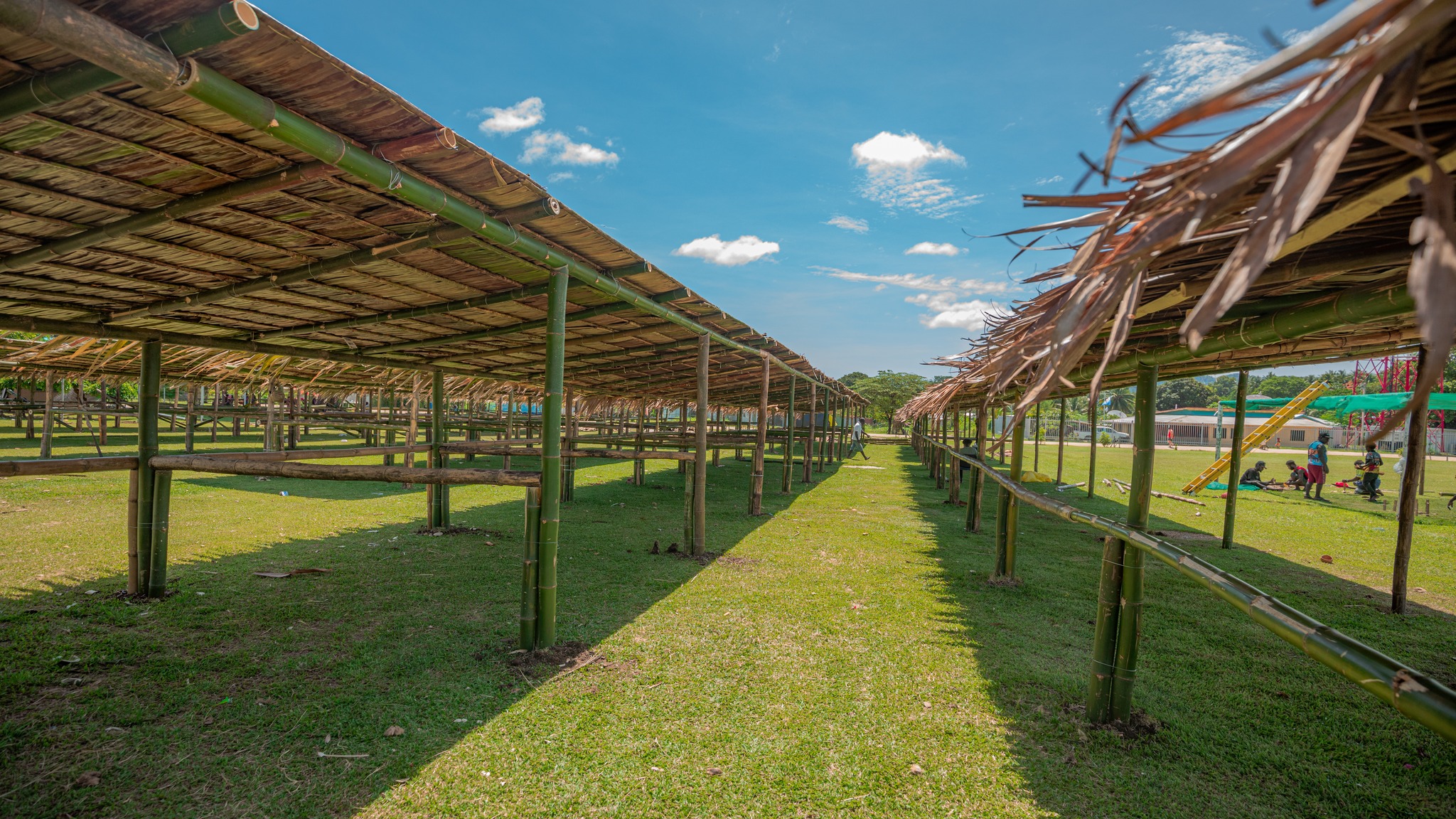In 2007, the U.S. Congress designated January 11th as National Human Trafficking Awareness Day. People who are trafficked are considered victims of a crime under international law. The U.S. government is steadfast in its commitment to prevent human trafficking around the world and to protect survivors of all forms of human trafficking. Human trafficking occurs worldwide, including in Papua New Guinea.
In Papua New Guinea, human traffickers exploit women and children in sex trafficking and in forced labor in domestic service, the tourism sector, manual labor, forced begging, and street vending. According to international NGO research, approximately 30 percent of Papua New Guinean sex trafficking victims are children younger than the age of 18, with some as young as 10 years old. Immediate family or tribe members reportedly exploit children in sex trafficking or forced labor.
Some parents force children to beg or sell goods on the street, and some sell or force their daughters into marriages or child sex trafficking to settle debts, resolve disputes between communities, or support their families. (For more information on human trafficking in Papua New Guinea, please visit https://www.state.gov/reports/2022-trafficking-in-persons-report/papua-new-guinea/)
Everyone needs to learn about human trafficking, as it robs millions of their freedom and dignity, inflicts untold harm on society, undermines the rule of law and public health and spurs crime. Human trafficking involves exploitation through the use of force, fraud or coercion, and can affect anyone, including you or your loved ones.
Human trafficking can take many forms including sex trafficking, child sex trafficking, forced labor, debt bondage, forced child labor, domestic servitude, and the unlawful recruitment and use of child soldiers. It affects men, women, transgender individuals, and children both across borders and internally within a country.
The international community responded in 2000 with the UN Protocol to Prevent, Suppress and Punish Trafficking in Persons, Especially Women and Children.
That same year, the United States passed the ground-breaking anti-trafficking law called the Trafficking Victims Protection Act which established the Office to Monitor and Combat Trafficking in Persons to lead U.S. global engagement on human trafficking and support the coordination of anti-trafficking efforts across the U.S. government. Since the passage of the Trafficking Victims Protection Act in 2000, the United States’ commitment to combat human trafficking has only grown.
Since 2010, every U.S. President has dedicated the month of January to National Human Trafficking Prevention by Presidential Proclamation to raise awareness about the different forms of human trafficking and how to identify and address this crime.
The Trafficking Victims Protection Act requires the State Department to submit a report to Congress by June 30 of each year on the degree to which governments of countries with trafficking victims meet the law's minimum standards for the elimination of trafficking. This TIP Report comes out each year and ranks government actions to combat trafficking in persons by a tier ranking system.
The 2023 TIP Report will cover efforts by governments during the reporting period from April 1, 2022 to March 31, 2023 and will be release in July 2023.
Below are stories of modern slavery from around the world.
Malaya’s husband became very sick and could not work in their home country of the Philippines, so she sought work abroad to support them both. An employment agency found her a job as a domestic worker in Qatar, where her employer paid her less than the agreed upon salary in her work contract and refused to give her time off. The employer refused to allow Malaya to leave her job and physically and emotionally abused her.
Finally, her employer took Malaya to the UK to work for his sister where she was also trapped in domestic servitude, not allowed outside, and had to sleep on the floor. One day while her employer was asleep, Malaya escaped to a nearby church where members of a Filipino workers’ union provided her shelter and referred her to victim services.
Amira was a Palestinian transgender woman living on the streets in a city in the West Bank. She was a sex trafficking victim who had been blackmailed and threatened when she tried to leave. When she was 19 years old, she fled to Israel because of her fear of persecution as a member of the LGBTQI+ community and sought recognition as a trafficking victim. However, she was deported because of her illegal immigration status. A year later, she again fled the West Bank and returned to Israel where authorities arrested her on immigration charges and detained her for three months.
With the help of an Israeli NGO, authorities granted Amira a temporary stay permit, but did not give her a work permit. Officials also did not recognize her as a trafficking victim, which would have afforded her a work permit, housing, legal aid, and other forms of assistance under law. She constantly lived in fear of deportation when her residency permit would expire. After months of living in various NGO shelters without the right to legally work or make money of her own, she died by suicide. Several Israeli NGOs continue to provide assistance to Palestinian LGBTQI+ individuals who flee the West Bank, but they face challenges assisting this community because of discrimination and lack of legal protection frameworks for this vulnerable population.
Alejandra and Leticia left their home in Tijuana when a local recruiter promised to find them good jobs in California. The recruiter provided them with fraudulent documents and allowed the young women to stay with her for three weeks after arrival, but when the jobs never materialized, the recruiter forced them to leave her house. The women left with nothing and to survive took a loan from a local farmer in exchange for performing farm work. The employer took their identification documents until they could pay off their debt and charged them for transportation and other fraudulent fees. He threatened them with deportation if they did not work faster.
The young women sought assistance from a labor organization in the community that called the local police. Eventually, authorities arrested the perpetrators, identified the two women as trafficking victims, and referred them to organizations to receive assistance and care.
Silkworm factory owners forced Aabharana and her mother to work 11 hours a day in terrible conditions to pay down a family loan while paying them only 200 rupees (US $2.69) a day. Eventually, the factory owner doubled the amount of their debt and forced them to continue working through threats and physical violence. While Aabharana and her mother were initially fearful, they shared their story with government officials and requested a certificate of release from the factory.
The authorities ruled in their favor and issued the release certificate providing proof that their debt was cancelled. The officials then escorted them from the factory.
Chichima left her home in Nigeria when she was offered a monthly salary of US $1,000 for a teaching position in Lebanon, but the offer was a lie told by a trafficker. Upon arrival, the trafficker forced Chichima to work as a domestic worker, laboring long hours for little pay. When she tried to leave, her employer said that he had “purchased her” for US $1,000 and that she had to do what he said. Making things worse, Chichima discovered that under Lebanon’s sponsorship system, she could not leave the country without her employer’s consent, meaning Chichima’s employer could legally restrict her freedom of movement.
Chichima is among thousands of people without freedom of movement or employment due to the sponsorship system in the Middle East, which inhibits trafficking victims from leaving their exploitative situations.




